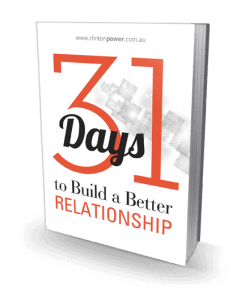How Gay Couples Can Successfully Negotiate an Open Relationship
While the LGBTIQ community has scored key victories in recent times with regards to same-sex marriage in some countries, numerous gay people still advocate the concept of the non-monogamous or ‘open relationship’.
Why enter into an open relationship?
Although monogamous relationships offer distinct advantages and benefits, plenty of gay couples enter into non-monogamy. This concept is not entirely new and has several benefits that long-term gay couples might seriously consider at some point in their relationship.
For one, this type of relationship may work for gay men who wish to lead an active and varied sex life that monogamous relationships cannot readily provide. Some members of the gay community advocate this type of relationship because of their belief that their lovers and their bodies should not be owned by anyone, including their partners.
For people who have been raised by monogamous parents, the idea of open relationships may seem alien—negative, even. However, open relationships can be a positive thing—that is, if both partners set the parameters early on and bargain with one another. Specifically, open relationships can help foster an honest relationship that is truly free of deceit and resentment. Certainly, for more adventurous couples, this type of relationship can lead to different types of sexual encounters.
But there can be dangers if you’re a gay couple wanting to open your relationship and the challenges of intimacy between yourself, your partner and others is a potential minefield.
Negotiating with your partner
Although protection from sexually transmitted diseases like HIV is one of the key foundations of a successful open relationship, there are a few important factors that should be discussed prior to this.
First, you have to talk with your partner about the idea of entering into an open relationship, discussing the ramifications and consequences of this decision. Both of you should be on the same page and both partners should be either or against the idea. If one of you or both of you try to avoid discussing the subject, you may be setting each other up for infidelity. If you find that you have reached a stalemate, consider enlisting the aid of a professional couples counsellor who specialises in LGBTIQ issues.
Next, you need to assess your relationship. While both you and your partner may be enticed by the idea of entering into this kind of relationship, do note that it is not for everyone. In order to have a successful open relationship, both partners should have a high degree of trust and respect for one another and always prioritise each other’s needs for intimacy over hooking up with people outside the relationship.
Setting boundaries is essential. These boundaries will ensure that conflicts are prevented and that the main relationship becomes the main priority. Additionally, being specific about the parameters of the relationships you engage in can lead to better satisfaction.
What exactly are these boundaries?
First, you need to identify who each partner can hook up with. Will you allow each other to enter into casual relationships with anyone, or are friends off-limits? Can you see the same person more than once?
Next, you need to discuss when both of you can hook up. For some couples, this may mean a free pass, while for some, this may mean only when the other partner is out of town.
Finally, you will also need to discuss the locations where hook-ups are allowed. Can you bring casual partners into your home or is your home your sacred relationship space?
One final consideration that both couples must discuss is how much they should tell their partners about their other relationships. Should you have a “don’t ask, don’t tell” policy, or do you wish to openly discuss these relationships?
There is a lot to consider before opening a relationship and these questions are only a starting point. But in the end, you need to put your relationship with each other above all other people or sexual partners to ensure the safety and security of your primary relationship at all times.
For a comprehensive list of questions, non-monogamous couples can work through, check out Chapter 11: Designing Your Open Relationship in the book, “Opening Up: A Guide to Creating and Sustaining Open Relationships,” by Tristan Taormino.
Another good resource for those considering opening their relationship is the book, The New Rules of Monogamy: Redefining Your Relationship After Infidelity, by Dr Tammy Nelson.
You can also listen to my interview with Dr Tammy Nelson about her book here.
Click the audio player below to listen to Clinton Power speak about open relationships on the ABC triple j radio show The Hook Up.
Are you an LGBTQI+ person who is struggling in your life or relationships?
If so, contact Sydney Gay Counselling on (02) 8968 9323 to find out how we can help or book an appointment online.

